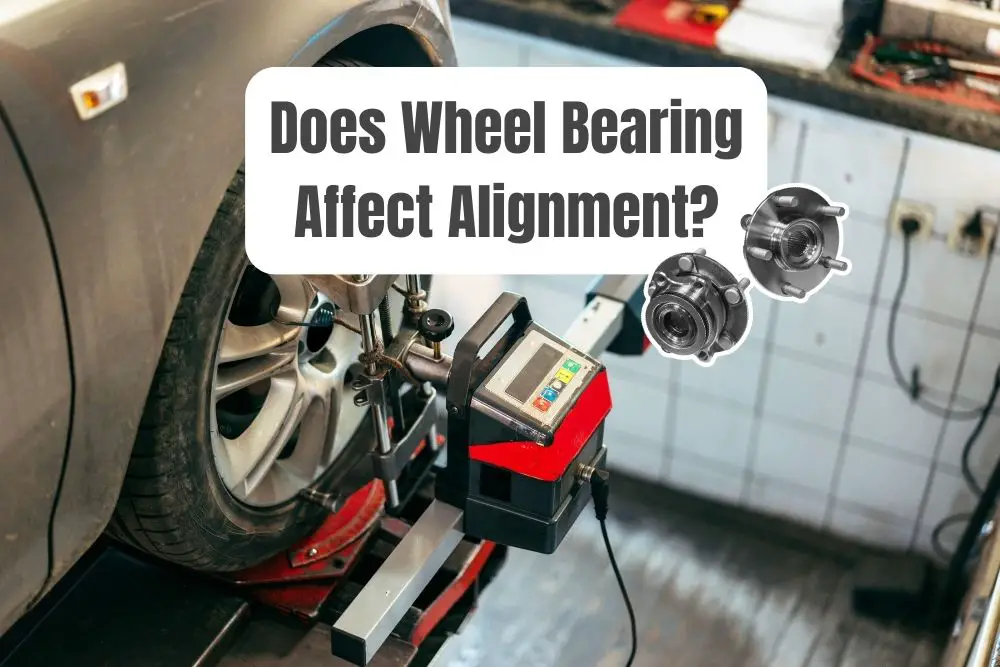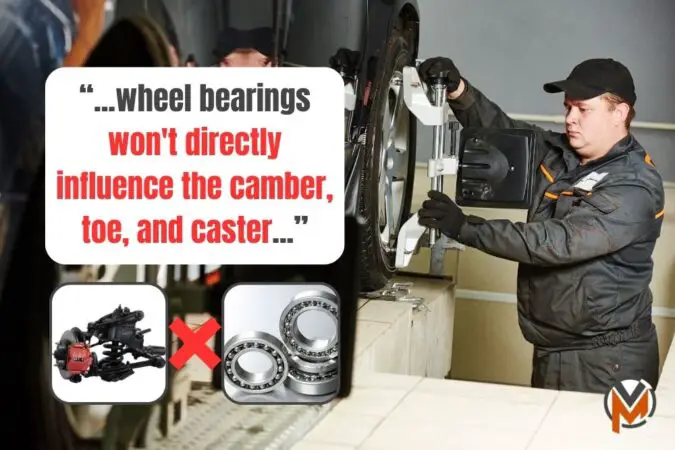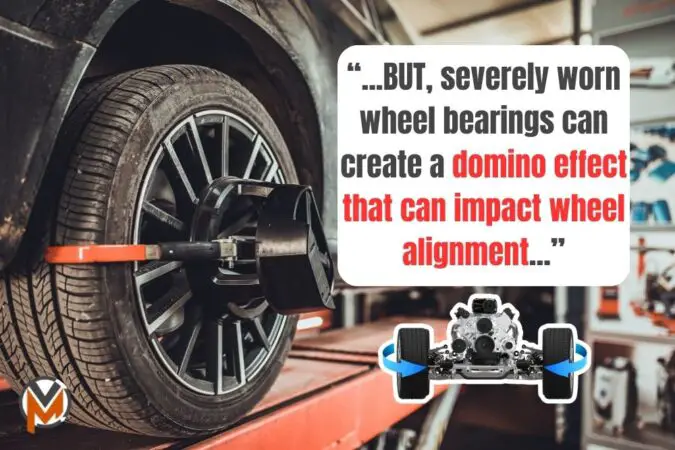Wheel alignments are one of those things that most people often forget about; but a proper alignment can make a huge difference to your car. So, does working on the wheel bearing affect your car’s alignment?
It’s a common misconception that replacing wheel bearings necessitates an alignment afterward. However, this is untrue, as most of the work done on wheel bearings doesn’t severely alter a car’s suspension or steering system.
Those latter two – suspension and steering – are what impact a car’s wheel alignment the most. With that in mind, there are situations where your wheel bearings could inadvertently impact the wheel alignment.
This is usually the case if and when, for example, your wheel bearings are so worn-out, that they might put more pressure on your car’s suspension and steering system, which can lead to misalignment over time.
- Wheel bearings vs wheel/tire alignments
- Can wheel bearings impact the alignment?
- How do they affect the wheel alignment?
- When to get a wheel alignment done?
Relationship Between Wheel Bearings & Wheel Alignments
The common belief that a wheel bearing service, repair, or replacement would automatically necessitate a wheel alignment is widespread. Yet, it’s based on a misunderstanding of how these components interact.
To clarify…
- 1) Your car’s wheel bearing’s primary function is to enable the wheel to rotate with minimal friction. It’s a component that’s more about the motion of your wheels, rather than positioning.
- 2) In stark contrast, a wheel alignment is all about the angles at which your car’s tires make contact with the road. This is mostly governed by your car’s suspension and steering systems.
In other words, a car’s wheel bearings are essential components that enable the wheels to rotate smoothly with minimal friction. They are highly crucial for the stability and handling of your vehicle.
However, the direct impact of wheel bearings on the wheel alignment is rather minimal. Wheel alignment primarily concerns the angles of the tires and their position relative to the road and your car’s frame.
Can Wheel Bearings Impact Your Wheel Alignment?
To delve deeper into this, let’s consider the mechanics involved. When a mechanic replaces or services the wheel bearings, they’re focusing on your hub, bearings, and sometimes also the spindle.
These parts, while highly consequential to your car, won’t directly influence the angles of your suspension system – camber, toe, and caster. These are the critical elements of a car’s wheel alignment.
With that being said, it’s important to note that while wheel bearing replacements don’t inherently impact your car’s wheel alignment, pay mind to any improper reassembly or damage to related components.
During the aforementioned replacement or servicing process, these could inadvertently impact alignment. Therefore, I’d still recommend that a thorough post-service inspection is always recommended.
How Do Wheel Bearings Affect Your Wheel Alignment?
As I noted earlier, while wheel bearings don’t directly affect your car’s wheel alignment, ignoring a wheel bearing issue can lead to problems that might do so. Therefore, it’s good to still be cautious and wary.
For example, severely damaged or worn-out wheel bearings can create a domino effect that can impact your car’s wheel alignment. Imagine a wheel bearing that has deteriorated or worn out significantly.
It might cause your car’s wheel to sit at an improper angle, and thus wobble as you drive. That wobble can put uneven pressure on your suspension and steering components, leading to misalignment over time.
It’s a bit like a chain reaction; failing wheel bearings lead to wheel instability, which then stresses out your suspension and steering systems. This ultimately results in wheel alignment issues for your car.
This underscores the importance of addressing wheel bearing problems promptly. Hence, neglecting them not only risks your wheel bearings but can also lead to more complex and expensive repairs.
When Do You Need A Wheel Alignment Post-Wheel Bearing Service?
After servicing or replacing your car’s wheel bearings, a wheel alignment isn’t an automatic next step, but it’s not something to be dismissed outright. The key is to be observant of how your car behaves afterward.
After any significant service work is done on your car, it’s wise to pay close attention to how your car handles. So, ask yourself…
- 1) Are you experiencing any pulling, drifting, or veering over to one side?
- 2) Is your car’s steering wheel off-center when you’re driving straight?
- 3) Do you notice any uneven or accelerated tire wear (more than usual)?
These are some tell-tale signs (but it’s not limited to these alone) that your car may need a wheel alignment check. It’s worth considering, in addition, the age and condition of your car, and how you drive it.
Older cars or those that have seen a lot of wear and tear might be more susceptible to alignment problems after major work like bearing replacement. The same goes for any typical suspension or steering work.
In these cases, even if a wheel bearing service or replacement job itself doesn’t affect alignment, the overall condition of your car might warrant a comprehensive check to ensure everything is in order.



